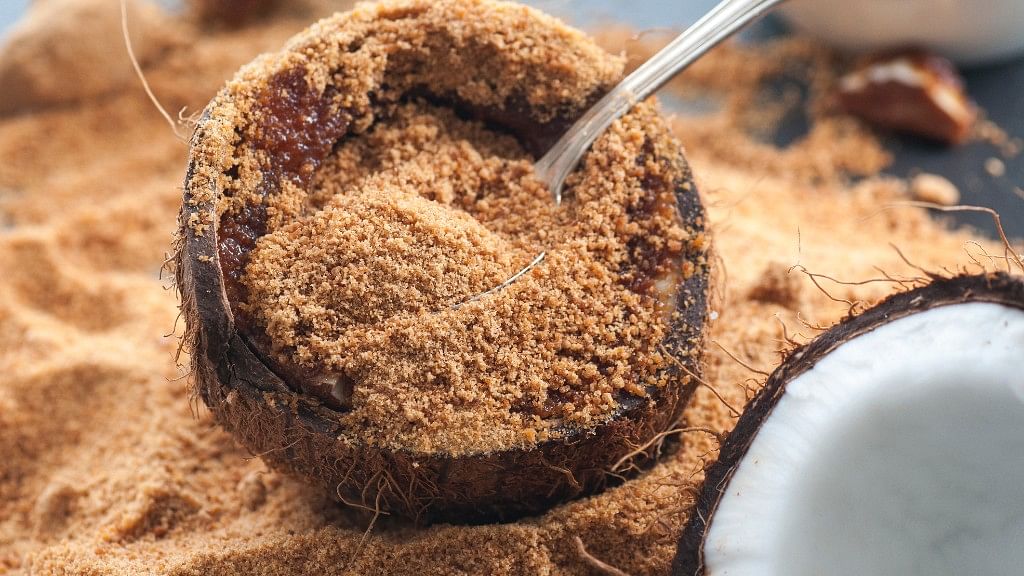Sugar Substitutes Other Than Honey or Jaggery? Give These a Shot!
Here’s a low down on the pros and cons of the top natural sweeteners that has the world excited.

We are all actively looking for alternatives for sugar. After all sugar has been proclaimed as the biggest food villain of the century thanks to its multiple damaging health effects. Luckily there are now multiple, healthy alternatives available beyond just honey and jaggery that can make your diet exciting.
Here's a low down on the pros and cons of the top natural sweeteners that has the world excited.
The Hot Ones
Maple Syrup
Pros: 100% pure maple syrup is mostly made in Canada and delivers various bioactive compounds like vitamins, hormones, polyphenols, amino acids, and packs in 65 different kinds of antioxidants too. It delivers a solid amount of magnesium - a mineral that helps produce collagen and promote skin and bone health.
Cons: None actually, except for the fact that there are many mixes available so one must carefully read the label and pick up 100% pure maple syrup, not just maple flavor.
Perfect for: Waffles, pancakes, Indian mithai, nimbu pani and baking cakes.
Coconut Sugar
Pros: Made from the nectar of the flower buds of the coconut palm. It tastes a lot like caramel, comes in block, paste or granulated form. Plus, it has iron, zinc, calcium and potassium.
Cons: The minerals are not in huge quantity.
Perfect for: Smoothies and baking.
Fun fact: Coconuts are a prehistoric plant that are believed to have come from the South Pacific (around what is now New Guinea).
Date Sugar
Pros: Made from dates, this sugar is a source of several key nutrients, including potassium, manganese, magnesium, copper, calcium, iron, B vitamins, vitamin K, and antioxidants. Also, it tastes slightly sweeter than white sugar, so use in moderation.
Cons: The nutrient amounts in a teaspoon of date sugar are minimal.
Perfect for: Great for baking, but as it doesn't dissolve well, it's not the best choice for smoothies or coffee.
Agave Nectar
Pros: Produced from the juice of the leaves of the blue agave plant, found in Mexico and South Africa, this sweetener tastes like honey but has a thinner consistency. It is suitable for vegans and due to its high fructose content, it has a lower glycemic index than sugar.
Cons: Too much fructose in it can be damaging for us.
Perfect for: Hot or iced tea.
The Less Popular Ones
These are just a pipe dream still in India, as they are not available at all.
But it’s good to know about them nevertheless, just in case you are traveling to the country of their origin!
Artichoke syrup
The syrup extracted from artichoke plant found along the Mediterranean contains prebiotics which feed the probiotics in our gut. It has a slightly nut-like flavour with hint of maple syrup taste.
Yacon
A sweetening agent extracted from the yacón plant found in Andes, this molasses-y syrup has hints of apple and delivers just half the calories of cane sugar.
It is prebiotic too because of its high insulin content.
Rapadura
It is made from sugar cane, but as it skips the refining stage, it retains vitamins and minerals that are lost when white sugar is processed.
Brown rice syrup
Brown rice syrup comes from brown rice. This buttery and nutty flavored syrup is perfect in granola bars and baked breads.
Lucuma powder
Made from Lucuma, a subtropical fruit native to Peru, it tastes somewhat like mangoes. Lucuma is said to contain 14 essential micronutrients in addition to cellulose and minerals.
Lo han Kuo (Monk Fruit)
Very popular in China and Thailand, this is extracted by crushing the monk fruit and infusing it with hot water.
It is incredibly sweet, has zero calories and low glycemic index.
(The writer is a nutritionist, weight management consultant and health writer based in Delhi. She is the author of Don't Diet! 50 Habits of Thin People (Jaico) and Ultimate Grandmother Hacks: 50 Kickass Traditional Habits for a Fitter You (Rupa).)
(At The Quint, we are answerable only to our audience. Play an active role in shaping our journalism by becoming a member. Because the truth is worth it.)